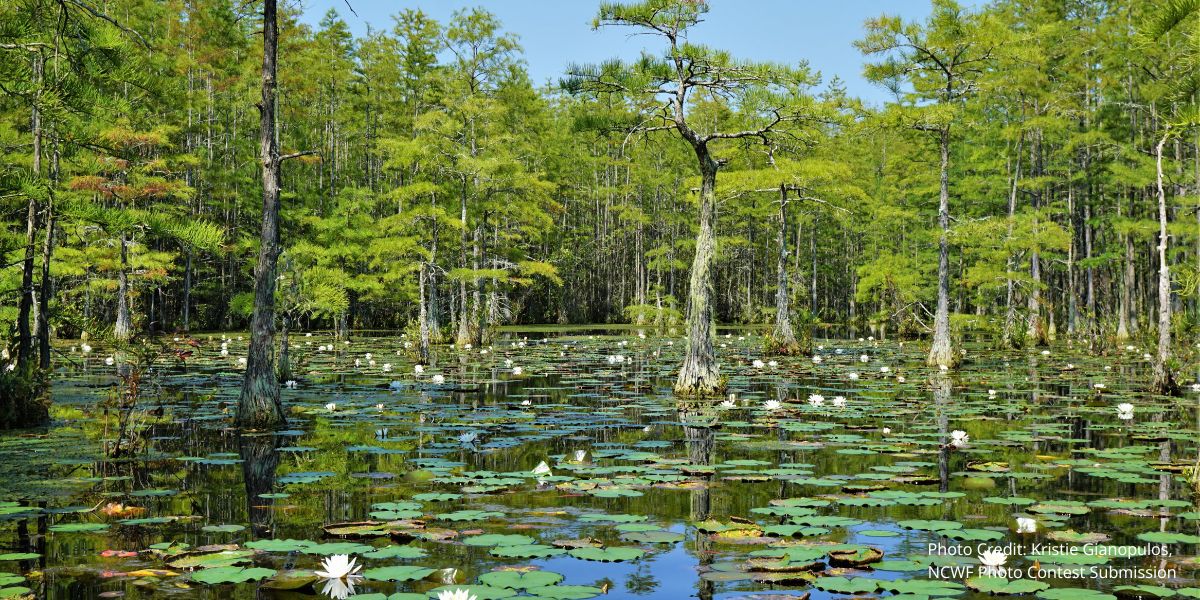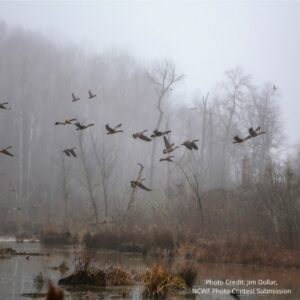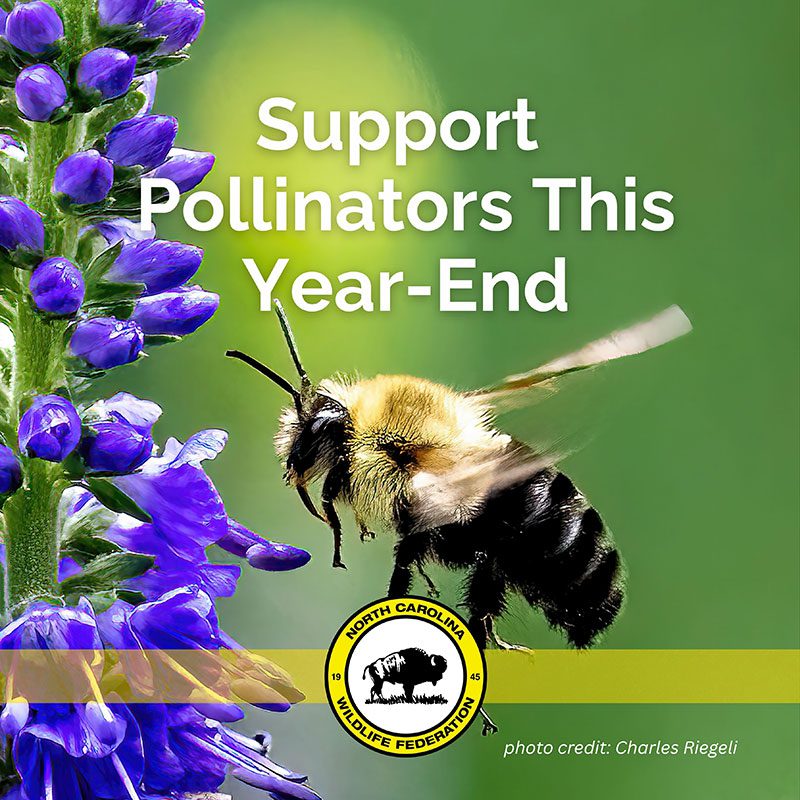A Call from the Top – Gov. Cooper’s Executive Order provides critical roadmap for NC wetlands

This story was featured in the Spring 2024 edition of the NCWF journal.
North Carolina’s wetlands hold immense value, providing vital habitat for numerous wildlife species, recreational opportunities to North Carolinians statewide, and essential climate and resource services such as flood resiliency, water quality improvement, and carbon sequestration.
Despite their irreplaceable significance, these natural landscapes face threats from development and habitat degradation, largely due to the  rolling back of legislation set in place to protect them from harm. However, a recent initiative ignites a shift in the fight for North Carolina’s wildlife and habitat.
rolling back of legislation set in place to protect them from harm. However, a recent initiative ignites a shift in the fight for North Carolina’s wildlife and habitat.
In February, North Carolina Governor Roy Cooper signed Executive Order No. 305, which aims to safeguard forests and wetlands and sets ambitious goals for the state’s conservation efforts. Hailed as one of the most impactful executive actions in over two decades, and boasting the most ambitious environmental conservation targets in the state’s history, Executive Order No. 305 enjoys broad support for its clearly defined conservation objectives.
“North Carolina’s rich natural beauty is not only critical in our fight against flooding and climate change, but important to our economy,” said Governor Cooper.
“As our state continues to grow, we must be mindful to conserve and protect our natural resources and this historic Executive Order sets clear goals and puts a plan in place that will help us leave our state better than we found it for generations to come.”
The action represents a significant step forward for wildlife habitat conservation efforts, particularly in light of recent legislative setbacks. Despite Governor Cooper’s veto, last year’s Farm Act of 2023, fueled by a U.S. Supreme Court ruling, weakened long-standing state wet lands protections, leaving critical wildlife habitats vulnerable to development.
As noted in Governor Cooper’s order:
“On June 27, 2023, the General Assembly overrode Governor Roy Cooper’s veto to enact the North Carolina Farm Act of 2023, which rolled back state protections for wetlands without first studying the environmental consequences of such an act for the people, environment, economy, and flood resiliency of the State of North Carolina.”
The order goes on to outline key objectives, including the permanent conservation and restoration of two million acres of forests and wetlands and the planting of one million trees in urban areas by 2040. Additionally, it mandates a Native Plant Policy for state-owned projects (following the preliminary policy set forth on Department of Natural and Cultural Resources property) and encourages support for conservation initiatives within tribal communities.
Underscoring the social, economic, and environmental value of North Carolina wetlands, the order directs the state to avoid or minimize new projects that would adversely impact vulnerable wetlands such as pocosins, Carolina Bays, and mountain bogs (particularly those that lost state and federal protections) and encourages state agencies to seek out funding for wetlands conservation and restoration projects.
“This is a pivotal point in redirecting the legislative narrative around North Carolina’s wetlands and natural spaces,” said Manley Fuller, Vice President of Conservation Policy for NCWF. “Governor Cooper’s Executive Order provides a road map for the state in protecting and restoring these critical habitats for all that depend upon them—people and wildlife, alike.”
Written by:

– Bates Whitaker, NCWF Communications & Marketing Manager


